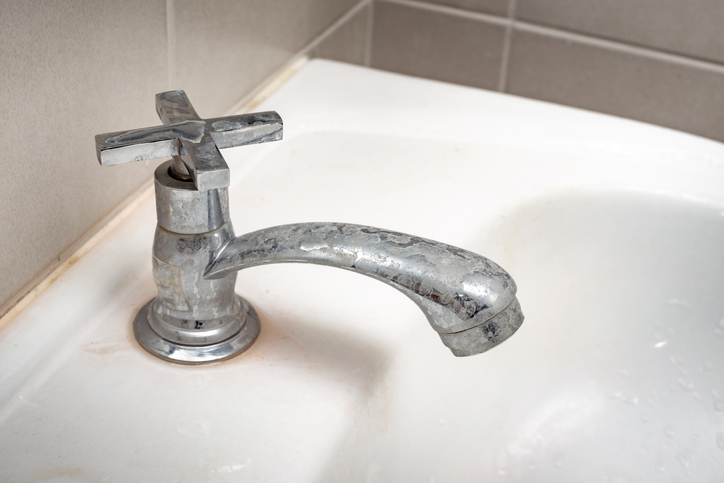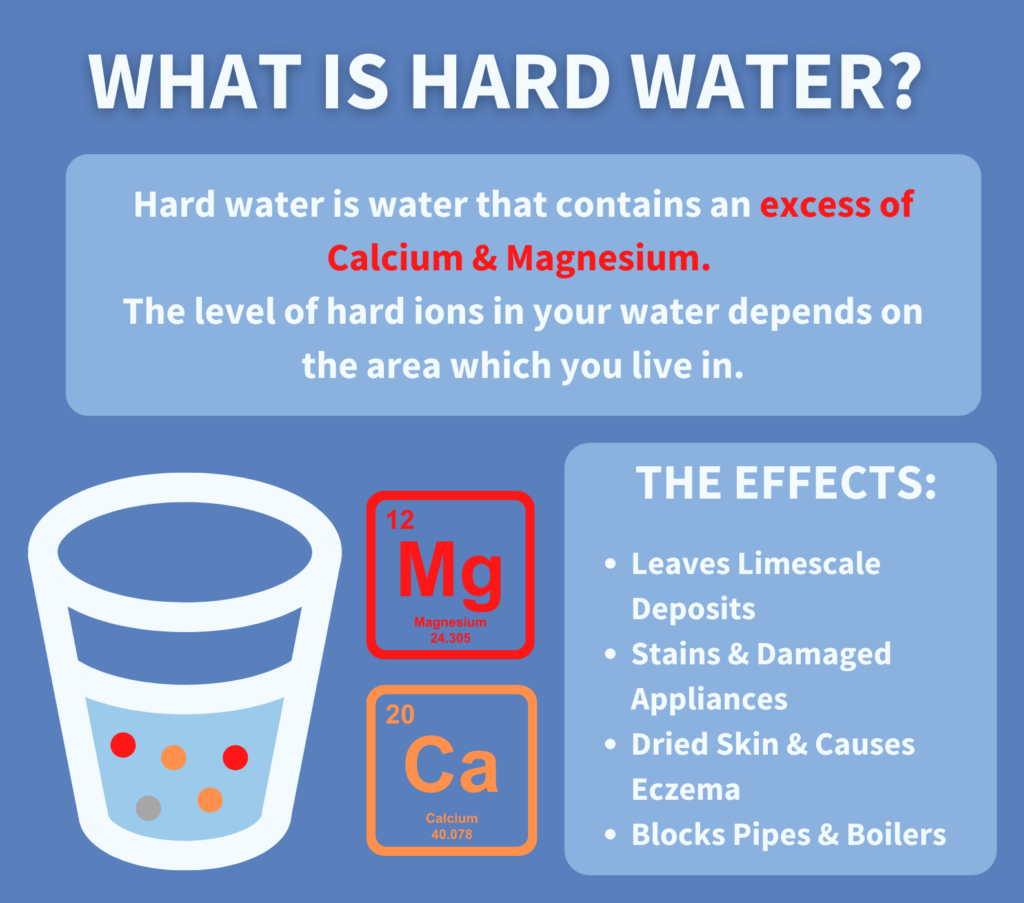
Hard water contains high levels of minerals such as calcium and magnesium, which can cause persistent stains on your home’s fixtures and appliances. These stains commonly develop on surfaces with frequent water usage, like those in the bathroom and kitchen. Though hard water itself isn’t harmful, the marks it leaves can be quite unattractive. Fortunately, professional cleaners from Urban9 Cleaning Services have some tips and tricks for home-owners to remove hard water stains using everyday household items.
Table of Contents
What exactly is Hard Water?

Hard water results from high concentrations of calcium, magnesium, and other minerals accumulated during the water cycle. It can occur in both city and well water. As these minerals dissolve in higher amounts, the water’s hardness increases. The level of water hardness varies by location and water source, which is why different cities within the same region can experience different degrees of water hardness.
While hard water is safe for washing and drinking, it can leave bothersome deposits and stains on surfaces and clothing. Some common indicators include:
- White, chalky stains in sinks, tubs, on faucets, and showerheads
- Clothes, linens, and towels that appear and feel dull or rough
- Scaly buildup and stains on porcelain surfaces
Other signs may include dry skin, flat hair, low water pressure, and higher-than-usual water bills.
Top Solutions for Eliminating Hard Water Stains
Effectively removing hard water stains can be achieved with a few natural cleaners.
Baking Soda: Baking soda is excellent for dissolving calcium deposits. Urban9 Cleaning Services suggests making a paste with equal parts water and baking soda, or vinegar and baking soda, depending on the surface and task at hand.
Vinegar: Vinegar is a highly effective cleaner for hard water stains. Our professional cleaners recommend using a 50/50 mixture of water and vinegar in a spray bottle. Note: Avoid using vinegar on soft stone surfaces like marble, granite, or soapstone.
Hydrogen Peroxide: Hydrogen peroxide is great for removing both hard water stains and soap scum. Dills advises applying it to the stained area, letting it sit for 15 minutes, and then scrubbing with a brush.
Materials Needed
The necessary materials depend on what you’re cleaning, but here are some basics:
- Distilled white vinegar
- Rubbing alcohol
- Baking soda
- Water
- Spray bottle
- Sponge
- Squeegee
- Scrub brush
- Microfiber towel
How To Remove Hard Water Stains From Different Surfaces
Glass
Urban9’s cleaning specialists note that vinegar’s acidity effectively breaks down hard water deposits. Here’s how to clean glass surfaces:
- Mix 1 cup water and 1 cup vinegar in a spray bottle.
- Spray the solution on the stain and let it sit for 30 minutes.
- Scrub the area with a sponge.
- For stubborn stains, apply a paste of baking soda and water.
- Let the paste sit for 10 minutes, then spray with the vinegar solution.
- Allow it to bubble for 10 more minutes, then scrub again.
- Rinse with hot water and dry with a squeegee.
Showers and Bathtubs
It is advised to use the same method for glass, but avoid vinegar on marble or porous stone. Instead, use a mix of 1/4 cup rubbing alcohol and 1 cup water:
- Spray the solution on the surface and let it sit.
- Scrub with a sponge.
- Rinse with hot water and dry with a squeegee.
Toilets
We recommends using vinegar and baking soda:
- Pour 1 cup vinegar inside the toilet bowl.
- Let it sit for 10 minutes.
- Add 1 cup baking soda and another cup of vinegar.
- Let it fizz for 10 minutes, then scrub with a toilet brush.
- Flush to rinse.
If the buildup has been accumulating for an extended period, a stronger cleaning method is recommended. You might find the blog “How to Remove Stubborn Toilet Stains” particularly useful for this.
Sinks
Use the same vinegar and baking soda method for toilets:
- Apply a baking soda paste to the sink.
- Spray with a vinegar solution.
- Let it fizz for 10 minutes.
- Rinse and wipe clean with a sponge.
Faucets and Showerheads
We suggest soaking in vinegar:
- Wrap a vinegar-soaked microfiber cloth around the faucet or showerhead.
- Let it sit for an hour.
- Scrub with a toothbrush or sponge.
- Rinse with water.
Dishware
The advice from our cleaning technicians:
- Soak dishware in a mix of equal parts vinegar and water (optional: add baking soda).
- Let it soak for 15-30 minutes.
- Scrub with a sponge or microfiber cloth, then rinse thoroughly.
Preventing Hard Water Stains
To prevent stains, wipe down wet surfaces immediately after use. This quick method takes only a few seconds but is highly effective in preventing water stain buildup. It is advisable to research the hard water levels in your area. Our cleaning experts recommend reviewing the Canadian guidelines to better understand how hard water impacts your lifestyle. If you reside in a region with high hard water levels, investing in a water softener can also help by removing the minerals that cause hard water stains.
